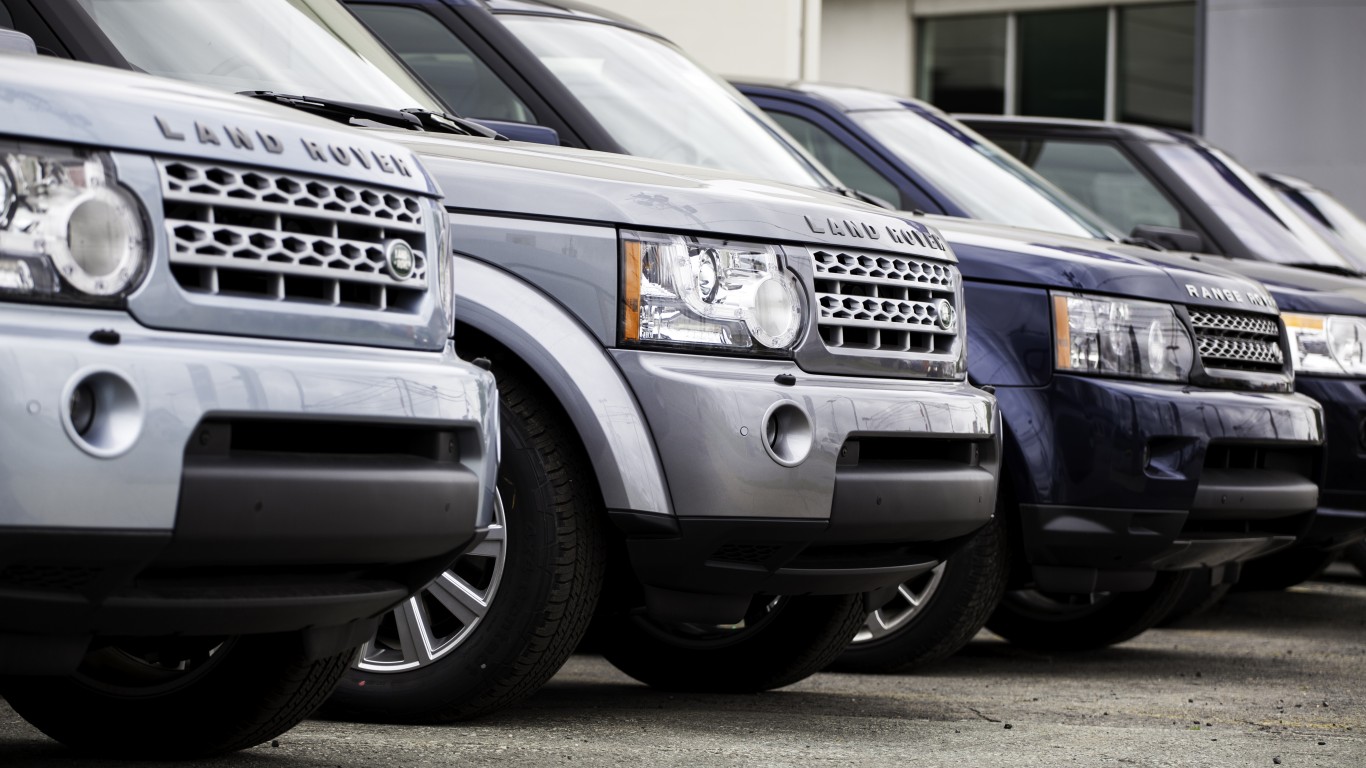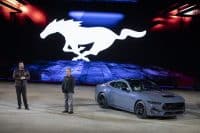
New car sales in China fell by 12% year over year in October, the fourth consecutive month to experience a year-over-year drop in sales. For the first time this year, year-to-date sales in October fell below 2017 sales for the same period. Year over year, monthly sales were down 12% in September and 4% in both July and August.
The slumping sales should be particularly concerning to General Motors Co. (NYSE: GM), which sells more vehicles in China than in any other country, including the United States. In the third quarter, GM sales were down nearly 15% year over year, and for the first nine months of 2018 sales were off 2.5% year over year. GM reports sales figures quarterly so we won’t hear from the company again until January. The company sold more than 4 million vehicles in China last year and had sold 2.68 million through September 2018.
Ford Motor Co. (NYSE: F) had a September sales drop of more than 43% year over year, and sales for the first nine months of 2018 were down 30%. Ford is not nearly as dependent on China sales as is GM, but the company needs to turn around its abysmal performance in the world’s largest auto market. To that end, the company announced a reorganization late last month that established a new Ford China division to be headed by industry veteran Anning Chen, a former Ford executive who has also been CEO of Chery and board chair of Chery Jaguar Land Rover, Automotive China. Ford has not yet reported sales numbers for October.
According to the China Association of Automobile Manufacturers (CAAM), the government-backed industry group that collects and releases the data on auto sales, passenger car sales in October fell 13% to 2.05 million units. For the first 10 months of the year, passenger car sales are down 1%, the first year-over-year sales drop in nearly 30 years, according to The Wall Street Journal.
Volkswagen reported Friday that worldwide October sales were down 6.2% year over year. In China, sales dropped 9.8% to 274,100 units, and year-to-date sales in China are up a measly 0.4% at 2.52 million. VW’s Asia-Pacific division, of which China is the most prominent member, posted a sales decline of 9.1% year over year in October. Here’s Volkswagen’s comment:
[The sales decline in Asia-Pacific] was mainly due to uncertainty on the part of customers in China as a result of the continuing trade dispute with the USA. The overall market is characterized by a strong reluctance to purchase.
The government also tightened lending requirements and lifted tax breaks this year for new car purchases and so far has shown no willingness to stimulate the market by loosening lending rules or creating new tax breaks.
Sales of electric vehicles (called New Energy Vehicles, or NEVs, in China) rose 51% in October and are up 76% for the first 10 months of the year to 860,000 units sold. If the pace continues, Chinese consumers will purchase more than 1 million NEVs in 2018, the first time that total has been achieved.
The Average American Has No Idea How Much Money You Can Make Today (Sponsor)
The last few years made people forget how much banks and CD’s can pay. Meanwhile, interest rates have spiked and many can afford to pay you much more, but most are keeping yields low and hoping you won’t notice.
But there is good news. To win qualified customers, some accounts are paying almost 10x the national average! That’s an incredible way to keep your money safe and earn more at the same time. Our top pick for high yield savings accounts includes other benefits as well. You can earn up to 3.80% with a Checking & Savings Account today Sign up and get up to $300 with direct deposit. No account fees. FDIC Insured.
Click here to see how much more you could be earning on your savings today. It takes just a few minutes to open an account to make your money work for you.
Our top pick for high yield savings accounts includes other benefits as well. You can earn up to 4.00% with a Checking & Savings Account from Sofi. Sign up and get up to $300 with direct deposit. No account fees. FDIC Insured.
Thank you for reading! Have some feedback for us?
Contact the 24/7 Wall St. editorial team.
 24/7 Wall St.
24/7 Wall St.



